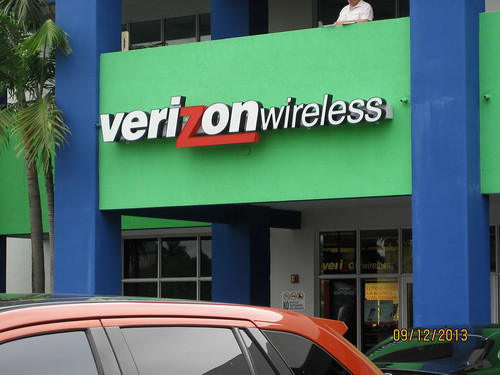Verizon has grand ambitions in the cable space, and it could be preparing to take one giant step toward making its dreams a reality.
In one of the more interesting potential deals in big tech these days, U.S. telecom behemoth Verizon Communications (VZ 0.48%) is rapidly closing in on a deal to buy Intel's (INTC 0.47%) Internet TV project OnCue.

This potential deal is by no means breaking news, per se. Word broke that Intel and Verizon were in talks over this same deal in October. However, the latest reports claim Intel selling its TV upstart to Verizon is nearing its final stages and could close as early as next week.
Tech investors should be paying attention for a number of reasons.
How Intel's OnCue could change the cable industry
On the surface, Verizon appears to gain the most in this deal, as Intel's OnCue could be a potential game changer in the U.S. cable market when placed in the right hands. The key here is the technology that powers Intel's OnCue and how it drastically differs from the typical cable distribution model.
Cable TV is mostly delivered in one of two ways, either through dedicated wirelines that cable companies own and maintain (think TimeWarner and Comcast) or via satellite (think Dish Network). As you can imagine, it isn't exactly cheap to build and maintain these massive networks. And because of the high fixed costs associated with maintaining these huge fiber optic networks, cable TV distribution tends to result in oligopolies in most regions.
As you might imagine, these high fixed costs also serve as a kind of barrier to entry of sorts as well, shielding cable providers from upstart companies that would aim to steal some of their business. There just aren't enough companies that can afford to put up the money required to support a cable distribution network to justify the expense, which is why you really never find more than a few choice cable providers in any given location. Unfortunately, this industry reality also helps to stifle competition among cable providers as well, which sadly explains the terrible customer service consumers receive from their cable providers.
Why OnCue makes sense for Verizon, not Intel
Intel's OnCue, however, could offer a better way forward. Intel's OnCue transmits cable programming via an Internet connection, which could allow Verizon circumvent the traditional fiber optic network distribution model.
Said another way, having access to OnCue's innovative technology would allow Verizon (or any other company with a similar technology) to offer its cable service to anywhere where an Internet connection exists.
Sounds pretty good right? So why is Intel punting on this seemingly massive opportunity?
Move along Intel
The primary reason OnCue makes sense in Verizon's hands and not Intel's comes down to content. Although it could require them to renegotiate some of their content deals (this isn't totally clear yet), Verizon already has deals in place with the content providers. It already pays studios and networks billions of dollars in licensing fees to distribute content through its FiOS cable service.

Source: Intel
It's clear Intel's new CEO, Brian Krzanich, is far more concerned with reversing Intel's fortunes in mobile microprocessors than building out an entirely new and foreign business model. Unfortunately, Intel doesn't have anything close to these deals in place and the prospect of pursuing such deals would require untold billions of dollars in investments from Intel before making this service a reality. Rolling out OnCue would also serve as a massive distraction from Intel's core business of selling chips.
So at the end of the day, this deal really comes down to fit for both Intel and Verizon. Although OnCue clearly holds plenty of potential, but it simply makes far more sense under Verizon's corporate umbrella than Intel's.
As of right now, this deal has yet to close. But for the reasons discussed above, it's clear it makes plenty of sense for both Intel and Verizon.




